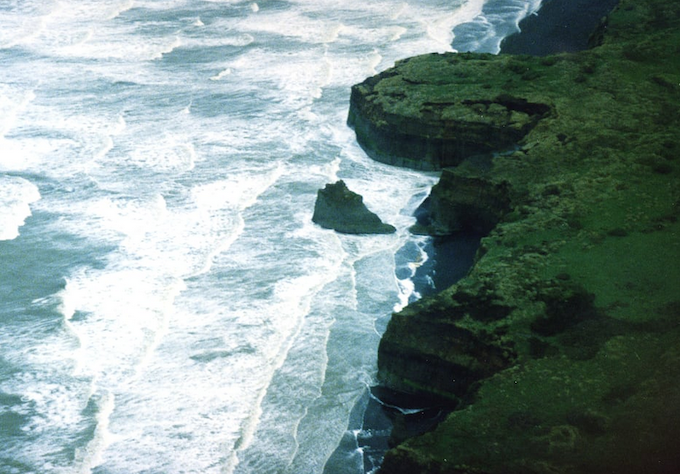
By Karoline Tuckey, RNZ News journalist
A call for the first reading of a member’s bill banning seabed mining altogether was voted down at Parliament today, with Labour, National and ACT turning in 106 votes against the Prohibition on Seabed Mining Legislation Amendment Bill.
The Green Party, Te Pāti Māori and independent MPs Elizabeth Kerekere and Meka Whaitiri made up the 13 votes in favour.
Te Pāti Māori co-leader Debbie Ngarewa-Packer said her member’s bill was born in response to an application to mine 66 kmsq of seafloor near Patea, over 35 years, and frustrations iwi had experienced in dealing with existing seabed legislation.
The application by Trans-Tasman Resources involved taking: “Millions of tonnes of iron, titanium, vanadium from the seabed… by dredging up millions of tonnes of the sea floor, extracting the mineral, and dumping the unwanted sludge back into the sea, smothering the surrounding area with a sediment film — which would spread all the way down from Taranaki to Wellington, affecting marine life, biodiversity, and Māori,” Ngarewa-Packer said.
But TTR chair Alan Eggers previously said if the company’s application for seabed mining near Patea was granted it would create “a major new $1 billion export industry employing best practice sustainable environmental approach to mineral recovery, with minimal impact on the environment”.
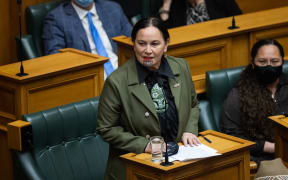
Ngarewa-Packer’s bill asked for a nationwide ban on seabed mining consents within Aotearoa’s exclusive economic zone and the coastal waters governed under the Resource Management Act (RMA), as well as the withdrawal of all existing seabed mining consents and a ban on any rights to exploration being granted under the Crown Minerals Act.
Inquiry announced
Earlier this month Labour’s Environment Minister David Parker announced a select committee inquiry to investigate seabed mining rules in New Zealand waters, and the potential benefits and drawbacks of seabed mining.
But Ngarewa-Packer said public opinion did not support that approach.
“The opposition to seabed mining has been strong . . . we already know an enormous amount about seabed mining. The government does not need an inquiry to understand that this industry would trash our moana; it’s abundantly clear,” she said.
“Iwi don’t want it. Our community don’t want it. The public doesn’t want it. Nor does the technology sector.”
There had been 13,000 submissions against seabed mining presented to the government, she said: “With only a handful in favour. We have also delivered 40,000-signature petitions to the government”.
“Ocean advocates from across Aotearoa have called on this government to urgently ban seabed mining. More than 30 hapū and iwi, environmental NGOs, KASM (Kiwis Against Seabed Mining) and Greenpeace Aotearoa have called on the prime minister to support my bill.”
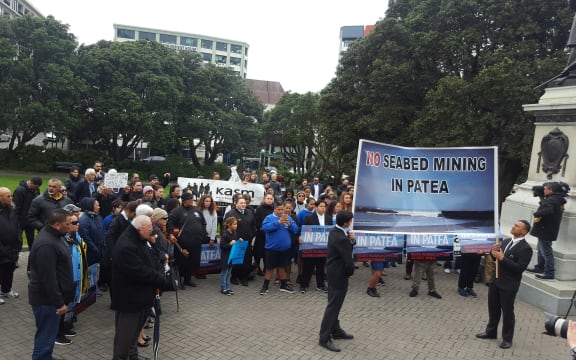
Ngāti Ruanui and Ngā Rauru had led a long fight against seabed mining in Taranaki, Ngarewa-Packer said.
There had been strong participation from fishers, divers, farmers and community leaders, and the opposition group included many with in-depth technical expertise in the sector.
‘Battle taken to every court’
“This battle has taken them to every court in this nation, resulting in successfully winning in the High Court, the Court of Appeal, and Supreme Court,” Ngarewa-Packer said.
“From our iwi’s perspective, seabed mining is a violation of our kaitiakitanga and as defenders of the ecosystems, we are gravely concerned it will affect everything. This is a part of who we are, where we are, and it must be protected.
“The government has a once-in-a-lifetime opportunity to stop this dangerous industry before it starts.”
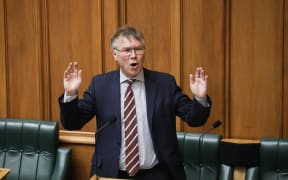
Parker said while the government did have concerns about the environmental impacts of seabed mining, this bill was not the right tool to tackle the issue. Particularly because it would cancel existing consents and exploration rights – including for gas, he said.
“It has been clear from the start of this bill that the effect of this legislation would have been to, amongst other things, close down the Maui platform, and it would have done that retrospectively, it would have done it without compensation, and it would have done it without any transition period.”
That would have “threatened the security of supply of electricity in the short to medium term”, and would cause the government to reneg on previous agreements to the oil and gas sector, Parker said.
Instead, he said that if the select committee inquiry found there were genuine concerns about seabed mining, those could be addressed at the wider Pacific regional level.
‘Genuine concern’
“If there is a genuine concern, as I do think there is about mining at sea, then, if we can coalesce with the Pacific around a solution to protect the Pacific from deep-sea mining, then, effectively, we will be protecting a big part of the world’s oceans.”
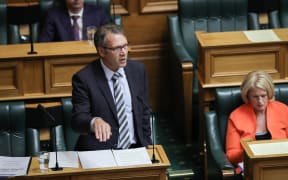
National Party spokesman for energy and resources Stuart Smith said blanket bans were unhelpful: “We have more than adequate processes to deal with environmental challenges and issues when we exploit resources — and exploit resources we do.
“Our very standard of living is totally dependent on the resources industry”.
Offshore seabed mining for aggregates was common overseas, he said: “Those sorts of things are happening all the time”.
New Zealand did not yet have the energy infrastructure to move away from using gas, and if less gas was available it would make the country more dependent on using coal to generate electricity, which was worse for the environment, he said.
The broad reach of the bill and its retrospective component would also dissuade trade and investment, Smith said.
“This bill would send a massive shock wave through the international community, particularly the sovereign risk that New Zealand has always been seen as very low, until the oil and gas exploration ban, which did send a massive shock wave through the international community.
Sovereign risk ‘too high’
“So much so that, in fact, I’ve been told from companies trying to raise funds for other projects — nothing to do with the oil and gas sector — that they weren’t going to be supported by independent financiers because they see the sovereign risk in New Zealand now, as a result of that ban, as too high for them; they would rather invest their funds elsewhere.”
The issue had been a hot topic globally as the International Seabed Authority (ISA) planned to begin taking applications for industrial-scale deep-sea mining in Pacific waters in July.
However, critics were worried about potential environmental damage and the effects mining could have on coastal communities, with some saying better regulations were needed.
And there has been an increasing international call for an end to seabed mining, with France, Canada, Tuvalu, Fiji and Nauru among those who have called for a moratorium.
Ngarewa-Packer said the government’s stance was confusing, considering their support of a conditional moratorium against seabed mining in international waters.
“We cannot fathom for the life of us how Labour today is able to face themselves,” she said.
This article is republished under a community partnership agreement with RNZ.











































